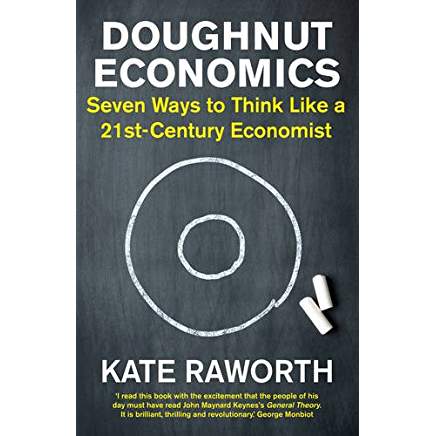oliver says...

In order to effect change, it seems we need 5 crucial steps:
Be willing to See and acknowledge the issue we need to change;
Decide you are in fact going to Do something about it;
Connect with others to gain support, new ideas and collective clout;
Find ways to Sustain your own energies to ensure you don't burn out; and
Use your experience and energy to Inspire others to take action so we make the
change become exponential.
On that basis we asked Oliver what he thinks ...
1 What issue do you see or come across that awakens the creative disruptor in you, and why does it matter to you the way it does?
One issue?! Climate crisis, energy, soils, pesticides, foreign policy, tax havens, refugees, NHS, Brexit (aargh).. and, on the other side, organic farming, woods, fabulous people fighting for justice, birdsnbees, solutions everywhere if only we can grab them.
2 What action are you actually taking to tackle this, and how do you feel about what you do?
Concentrate on one issue, pursue it, look for allies, share ideas and goals, have fun, realise I can't change the world on my own. Take vicarious pleasure from the success of others.
3 How important do you think it is to reach out to and work with others as you work for this change, and how do you do it?
We can't do it on our own. Always look for goals to share with others - friends, colleagues, family (hardest of all!) - and use other people to keep your spirits up.
4 How do you keep that fire in your belly alight without it causing you to burn out? How do you sustain your energies and look after you, and crucially, what's your advice to others?
Mostly the fire just keeps on burning! Burn out comes for me when I can't find others to share with, and see the path ahead with. There's nothing wrong with taking a few weeks or months out; I never forget though that a stray conversation with an inspirational person can set the fire blazing again immediately!
|
"Kate's resetting of economics is timely, accessible, thoughtful, and, most of all, at last, a fundamental challenge to the neoliberal orthodoxy. What she presents and illustrates is what we all should already know: that our popular form of economics is restrictive and isolated and completely fails to see its own limitations, or the damage it wreaks as a consequence of its manifold failures. If you're interested in the planet and our inter-reaction with it, this is essential reading. A great book."
|
|
|
|
|

